The Summer of 2025 has been a nice one. Nice because we return to our love for the ocean. It’s our favorite place in the world.
As soon as we have the time to get in the water, we go there. We feel a mysterious longing for the sea as some kind of secret to our own identity as if our blood had salt water in it. Symbolically, I, the surfer, am—myself. The body with which I surf in the sea symbolizes the soul, with which I “surf” in God. The sea is God. The beach is the approach to God. Surfing is the experience of God, or the spiritual life.
In the pre-dawn darkness, surfers wade into the ocean with a reverence that transcends sport. They’re not simply pursuing recreation—they’re entering a cathedral of salt and motion, where the boundary between self and sea dissolves with each wave.
Surfing strips away the modern world’s complexities, demanding presence in its purest form. There’s no room for yesterday’s regrets or tomorrow’s anxieties when you’re reading the face of a building wave. The ocean becomes teacher, demanding humility from even the most skilled practitioners. You cannot conquer a wave; you can only dance with it, finding harmony in forces far greater than yourself.
This is why surfing resists being merely categorized as hobby or sport. It’s a practice of surrendering control while maintaining complete awareness—a meditation in motion that ancient Hawaiian cultures understood as deeply sacred. The ocean doesn’t care about your schedule, your ego, or your need to perform. It offers what it offers, when it offers it, teaching patience and acceptance.
Regular surfers speak of “getting their fix,” but what they’re really describing is communion. The rhythmic paddle out becomes ritual, the lineup a temporary sanctuary where time moves differently. Here, success isn’t measured in competitions won but in moments of flow achieved—those transcendent seconds when surfer, board, and wave become one unified expression.
The ocean’s lessons extend far beyond the water. Surfing teaches you to read subtle signs, to wait for the right moment, to commit fully when opportunity presents itself. It demands respect for natural forces and acceptance of your place within larger systems. These aren’t just surfing skills—they’re life skills, spiritual principles disguised as sport.
Perhaps this is why so many surfers describe their relationship with the ocean as love affair, pilgrimage, or calling. They’re not chasing thrills; they’re seeking connection to something ancient and eternal. In a world increasingly disconnected from natural rhythms, surfing offers a return to elemental truth—that we are not separate from nature, but part of its endless, sacred dance.
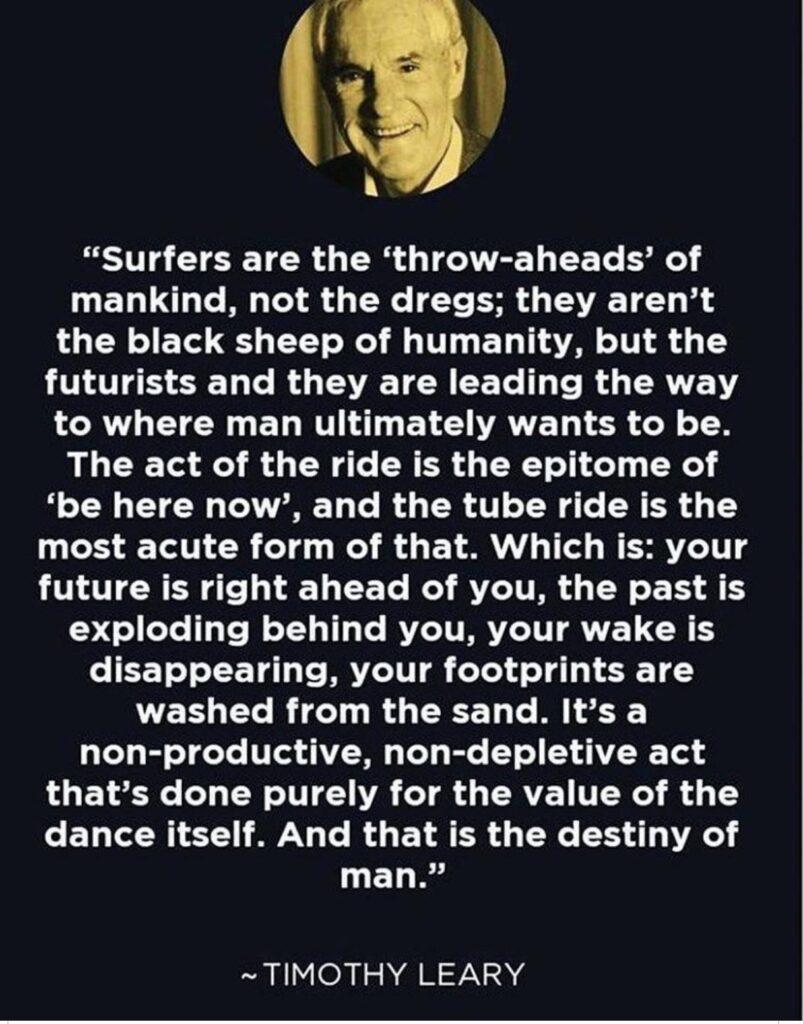
Beginning when I was a kid of six or so, my family would take us to the beach, whether Kill Devil Hills or Nags Head or Kitty Hawk, usually in mid to late August to, as my dad would say, recharge. Growing up in Great Bridge, back in the day, we were always only an hour and a half or so away from the Outer Banks. In High School, Friday evenings we would strap the boards to the roof and drive 168 south with a few bucks and maybe a blanket to sleep on…not that we slept much. It was a monastic journey, aided by illegal plants from the good, green earth. It was work, to work towards our desire for the sea, and that desire had to be deep…a sensual practice, it constitutes its sacred center, and the corresponding experiences are constructed in a way that leads to a belief in nature as powerful, transformative, healing, and sacred. In a deeper sense, it is an understanding that everything is part of God even though God is more than everything added together.
The key was to live well below our means, stripped down, just the essentials. Over the years, we put together a loose list of things we jokingly called ‘Surfer Rules’. Hardly rules at all, and not even just about surfing, but more like a set of things to think about, ideas to live by. We’ve added some, and taken some away, but every once in a while, usually after coming back from recharging, we like to revisit them, for old time’s sake if nothing else….
1. Always take the beach road. Even when there is a modern highway right next door, where you can drive 55 or 60, pull off onto the beach road, turn off the AC, and roll down the windows. Take the beach road.
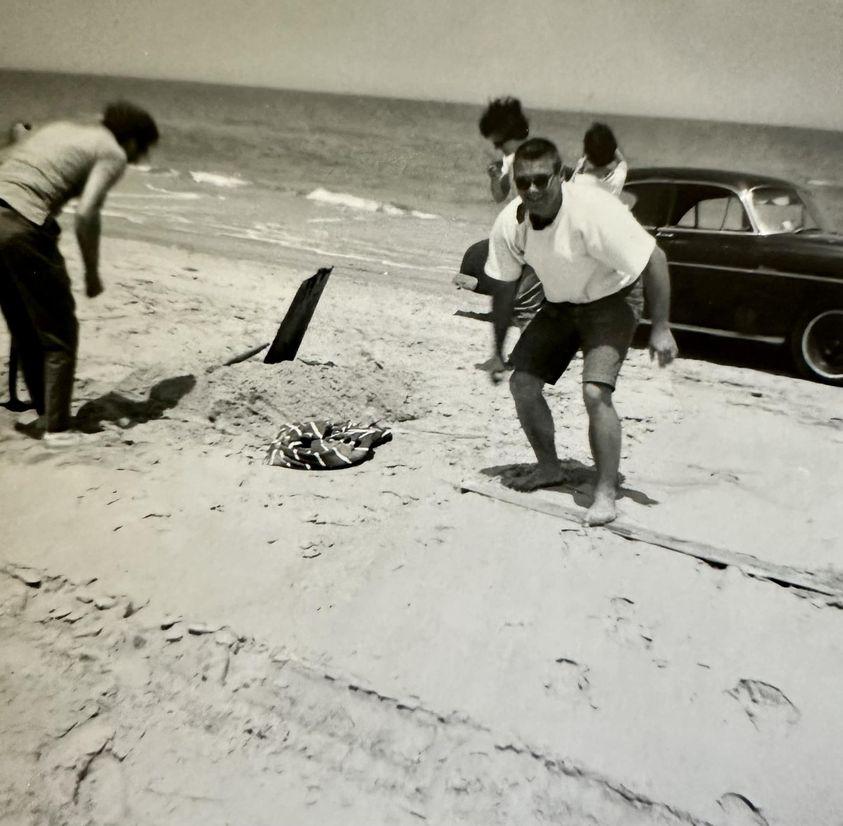
2. Drive south. This is a metaphorical rule, but in most cases, it seems to fit. When you reach the ocean, there is invariably a T in the road where you can go north or south. Go south.
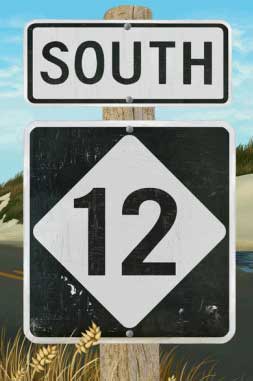
3. If you need more than a board (surf, boogie, skim, etc.), fishing tackle, and something to boil shrimp in, you’re in the wrong place.
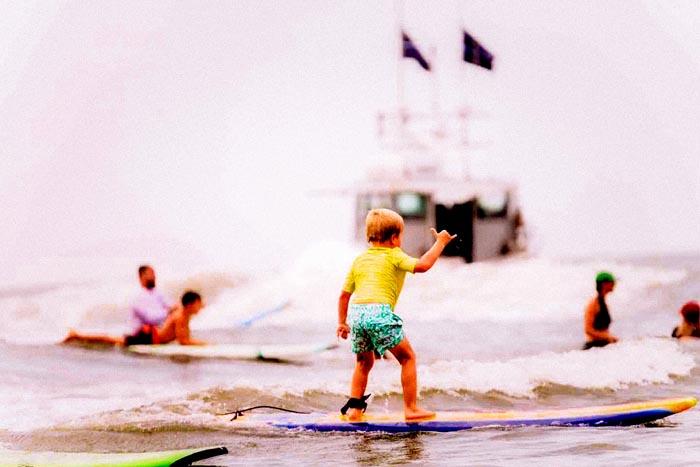
4. Always shop at K-Coast Surf Shops!

5. Avoid restaurants that advertise ‘All You Can Eat’ seafood buffets.

6. Eat at a place like Dune Burger, or something similarly named. You know the place, kind of a shack where you order from a sliding window and it has greasy picnic tables outside. Although this meal may be your last, eat at Dune Burger.
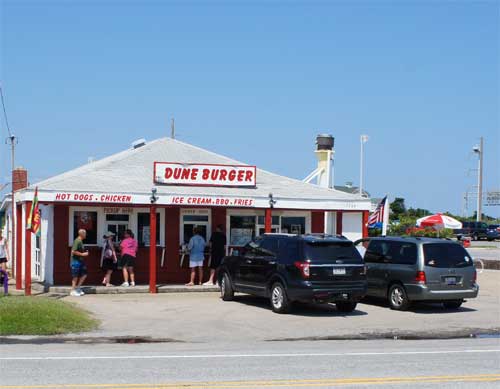
7. Surf or swim naked. Avoid intellectual stimulation. Think less, live more. Ride waves.
8. Avoid beach destinations that offer activities: author readings, children’s story times, yoga and exercise classes should be avoided at all costs. Outlet malls are strictly forbidden.
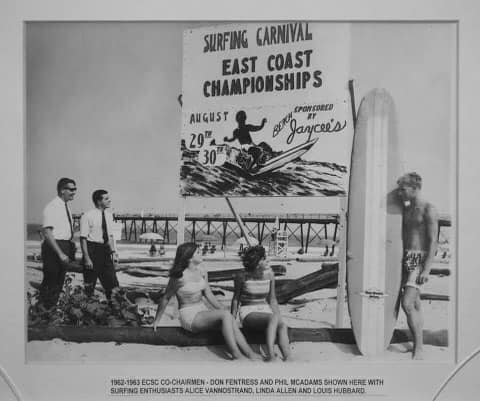
9. Try not to play Putt-Putt…but if you must, have fun!
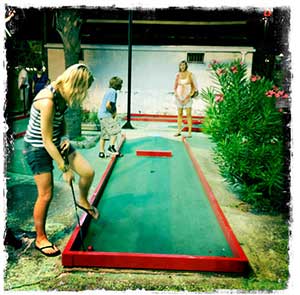
Note: Cape Charles Miniature Golf is pretty awesome!
10. Eat Wanchese shrimp. Every beach has something that is uniquely theirs; the Outer Banks has Wanchese shrimp. Eat local.
11. Don’t be a dick. Share the ocean, share the beach.
13. Never jog on the beach. If you do, please, no socks and running shoes.
14. Never wear Speedos. If you must, be sure to own it.
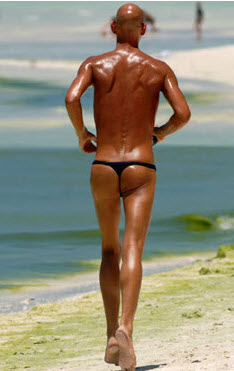
15. Longboards are okay. Just learn to turtle roll.
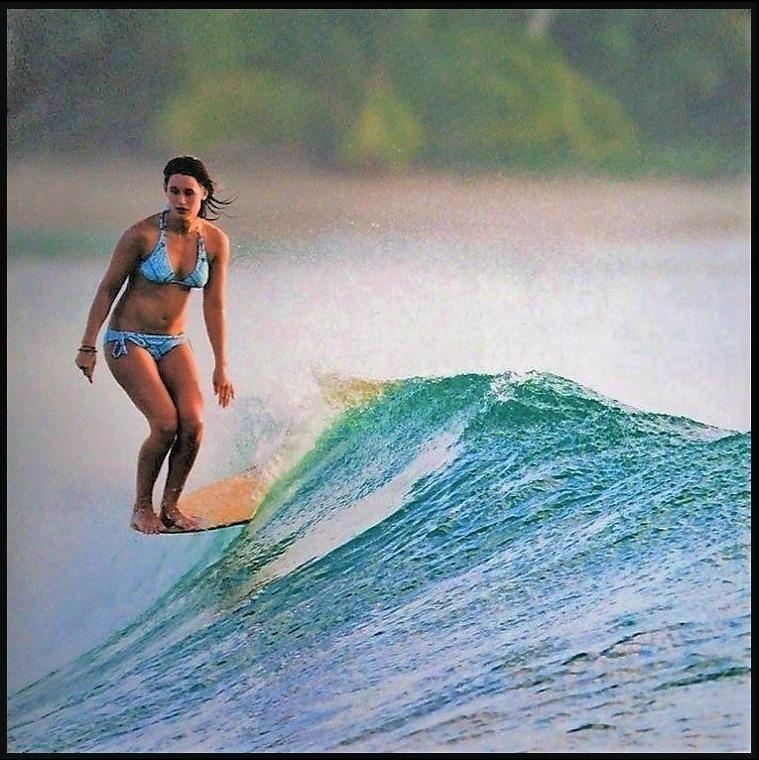
16. Wear Roxy, Carve, Hakuna, or Hurley Bikinis. These brands are sexy but can handle the waves. Simple.
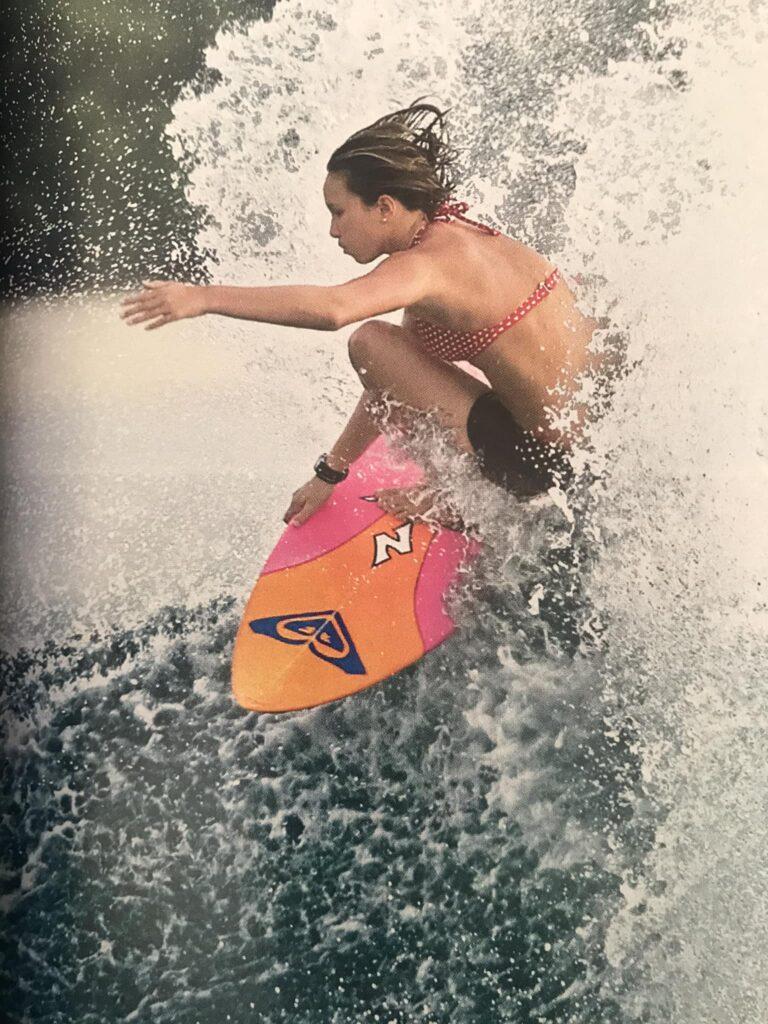
17. Never pay more than $3.00 for flip-flops.
18. If you are at the beach, always shower outside. Use a hose if you have to.
19. Have cake by the ocean (we recommend a big blanket).
20. Eat breakfast at the Nags Head Pier. Every beach town has a pier, with a little wooden diner, where the coffee is strong and the waitresses are nice.
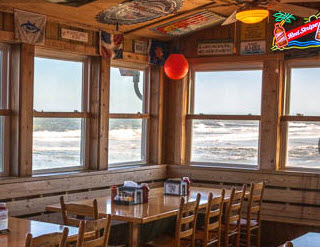
21. Use bloodworms for bait. You can catch anything with a bloodworm.
22. Own at least one pair of Birdwell Beach Britches.
23. Don’t be a dick. Pick up your trash, and always clean up after your doggy.
24. If someone mentions that they remember when the beach road was sand, stop and listen.
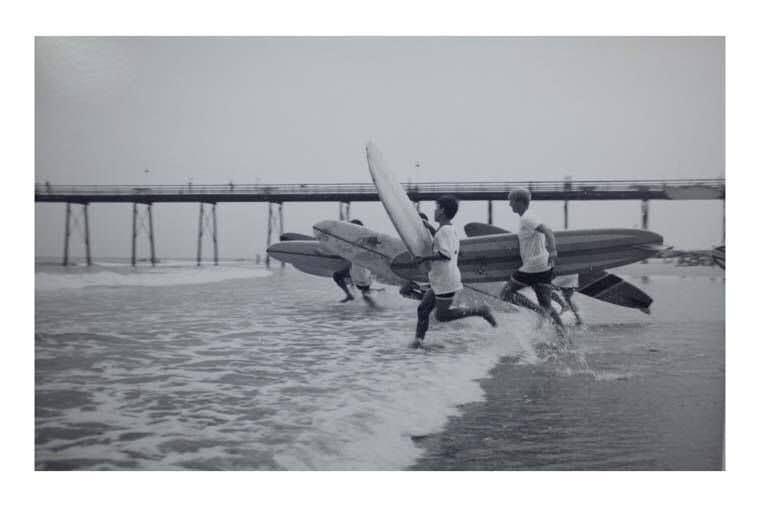
25. Don’t Drop In On Another Surfer.
26. The Surfer Closest To The Peak Has Right-Of-Way.
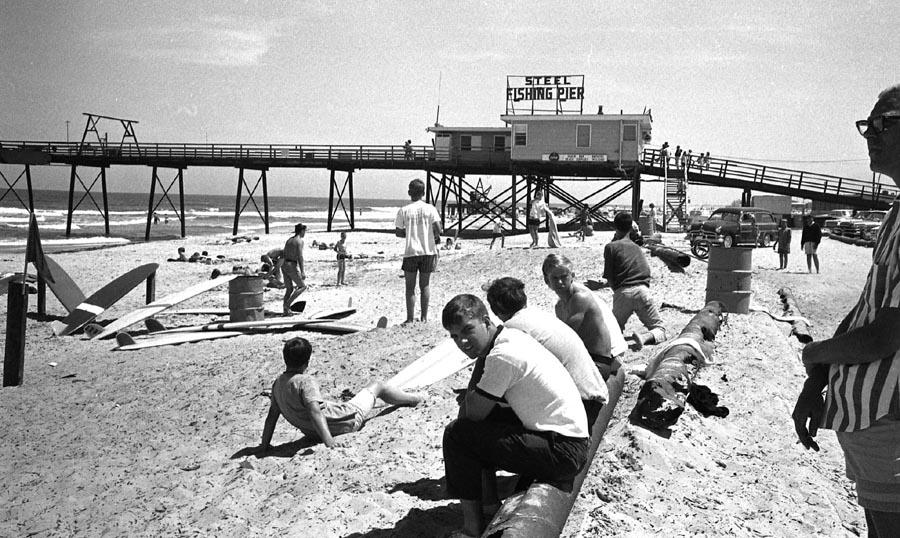
27. Paddling Surfer Yields To Surfer Riding Wave.
28. Don’t Ditch Your Board.
29. Don’t Be A Snake.
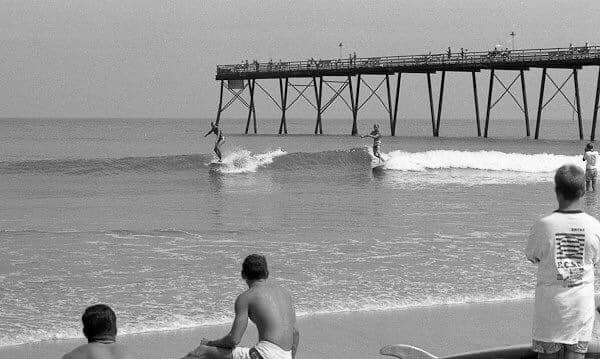
30. Do Not Bother Children When They Are Surfing.
31. Pick up your trash.
32. Be considerate of others using the beach.
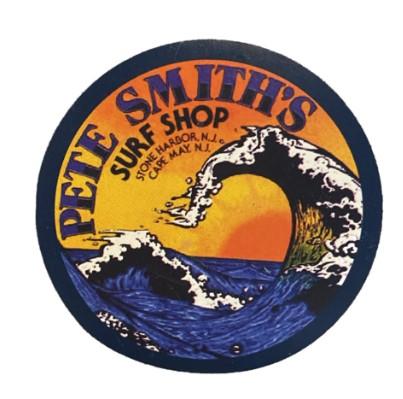
Seeing the sea is the fulfillment of the faith-from-afar and seeing God is the fulfillment of faith: “If you believe, you will see” (Jn 11:40). To smell the sea is the fulfillment of desiring hope from afar, a most mystical sense. Paddling into the sea is like self-forgetful, self-offering love. It’s an obligation, an offering of self.
“The key to post-terrestrial living is going to be grace and aesthetics… There’ll be no more constraints on linearity, of four walls; a building can be any shape at all. It’s tied to surfing because it means that we’ll be freed from gravity, and we can be totally into style and grace. And it may seem strange to be talking to surfers about post-terrestrial living, because surfing is water, and we’re talking about air or a vacuum. But it’s perfectly logical to me that surfing is the spiritual aesthetic style of the liberated self. The reason I define myself as an evolutionary surfer is that surfers have taught me the way you relate to the basic energies, and develop your individual sense of freedom, self-definition, style, beauty and control” — Dr. Timothy Leary
Spirit of Surfing’ is a low-key initiative started in 1995 by longtime surfer, Peter Cuming, surf elders Rob Conneelly, and Nat Young, and surf artist Roscoe Kermode. Spirit of Surfing was established to promote the traditions of free surfing; respect for the ocean, the land, and indigenous and local cultures wherever surfers are and travel; fostering community spirit; and a harmonious relationship with the natural environment. The general Spirit of Surfing (SoS) focuses on active beach restoration work as part of their regular surfing life.

Fall and winter are still some of the best times to enjoy the ocean



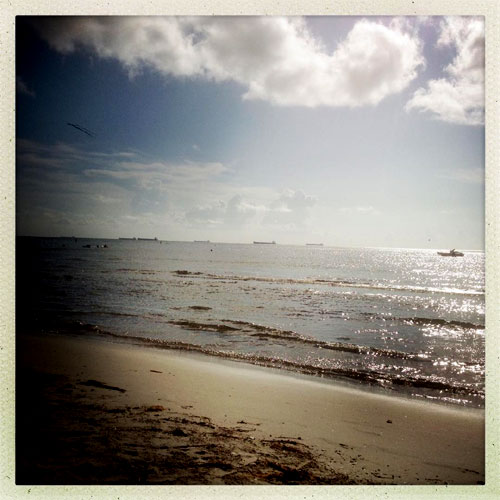
Excellent,,,!!!